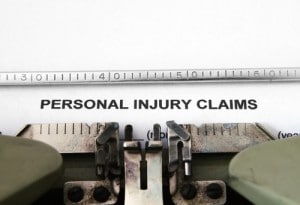
Generic Drugs Previously Exempt from Personal Injury Lawsuits
In 2011, the Supreme Court ruled 5 – 4 that patients cannot levy personal injury lawsuits against manufacturers of generic drugs if they fail to warn about side effects. The ruling was based on the FDA’s regulation that generic drugs must be functionally, chemically equivalent to their name brand counter parts.
However, a lower court in Boston recently ruled against the Supreme Court’s earlier ruling, in favor of the plaintiff and against Takeda Pharmaceuticals (which is already facing a serious lawsuit for its name brand drug Actos, which treats Type 2 diabetes and has been linked to increased risk of bladder cancer). The court ruled in favor of plaintiff Karen L. Bartlett, under the premise that Takeda’s sulindac – a painkiller Bartlett took for shoulder pain – was so dangerous it should not have been on the market.
Bartlett’s Personal Injury Lawsuit
The New Hampshire woman began taking the non-steroidal anti-inflammatory generic drug for shoulder pain. However, she suffered a severe allergic reaction to the drug, causing her to lose 60% of her outer skin layer. She spent 6 months in a medically-induced coma, a year being fed through a tube, and 12 eye surgeries. She suffers lesions over two-thirds of her body, cannot eat normally, and is nearly blind.
Because there were no additional warnings on the packaging, Bartlett opened a personal injury lawsuit against Takeda Pharmaceuticals for alleged design defects. If the drug had been the functional equivalent of its name brand counterpart, she would not, in theory, have suffered such horrible injuries from an allergic reaction.
US Supreme Court Agrees to Reconsider Its Stance on Personal Injury Lawsuits Against Generic Manufacturers
Mutual Pharmaceutical Co, a subsidiary of Takeda Pharmaceuticals, appealed the decision from the lower court of Boston to the US Supreme Court, after the lower court awarded $21 million to Bartlett. They countered the suit by claiming that federal law in the United States prohibits these claims, as the FDA has pre-approved generic drugs for the market. Federal law requires that generic drugs have the same chemical structure as their name brand counterparts, and FDA regulations check for that before agreeing that manufacturers can produce the generic drug.
This also means that federal regulations require generic and name brand drugs to have the same labels and warnings.
The 1st US Circuit Court of Appeals in Boston, which decided Bartlett’s case, refused to extend the original Supreme Court ruling to the state’s design defect laws. They upheld Bartlett’s award, so the personal injury lawsuit has become a matter of federal vs. state law.
The Supreme Court will hear arguments in March 2013, and rule in June.
The Strom Law Firm Can Help with Personal Injury Lawsuits Against Dangerous Drugs

At the Strom Law Firm, LLC, our personal injury lawyers understand that your case, your story, is about more than just an accident or physical injury.
It is also about what happened after the accident or injury. It’s about how that accident and those injuries have affected you and your life, and about how they may keep on affecting you in the foreseeable future. It’s about before and after.
As your personal injury attorneys, you can depend not just on our knowledge and understanding of the law, our resources, and our proven ability to secure positive results in personal injury cases. You can depend upon our commitment to telling your story and to securing fair compensation for all the ways you have been affected and will continue to be affected in the future.
If you have been harmed, or a loved one has been harmed or killed, by a defective product or drug, the attorneys at the Strom Law Firm can help. You may be entitled to compensation through a personal injury lawsuit. We offer free, confidential consultations to discuss the facts of your case, so contact us today. 803.252.4800.

